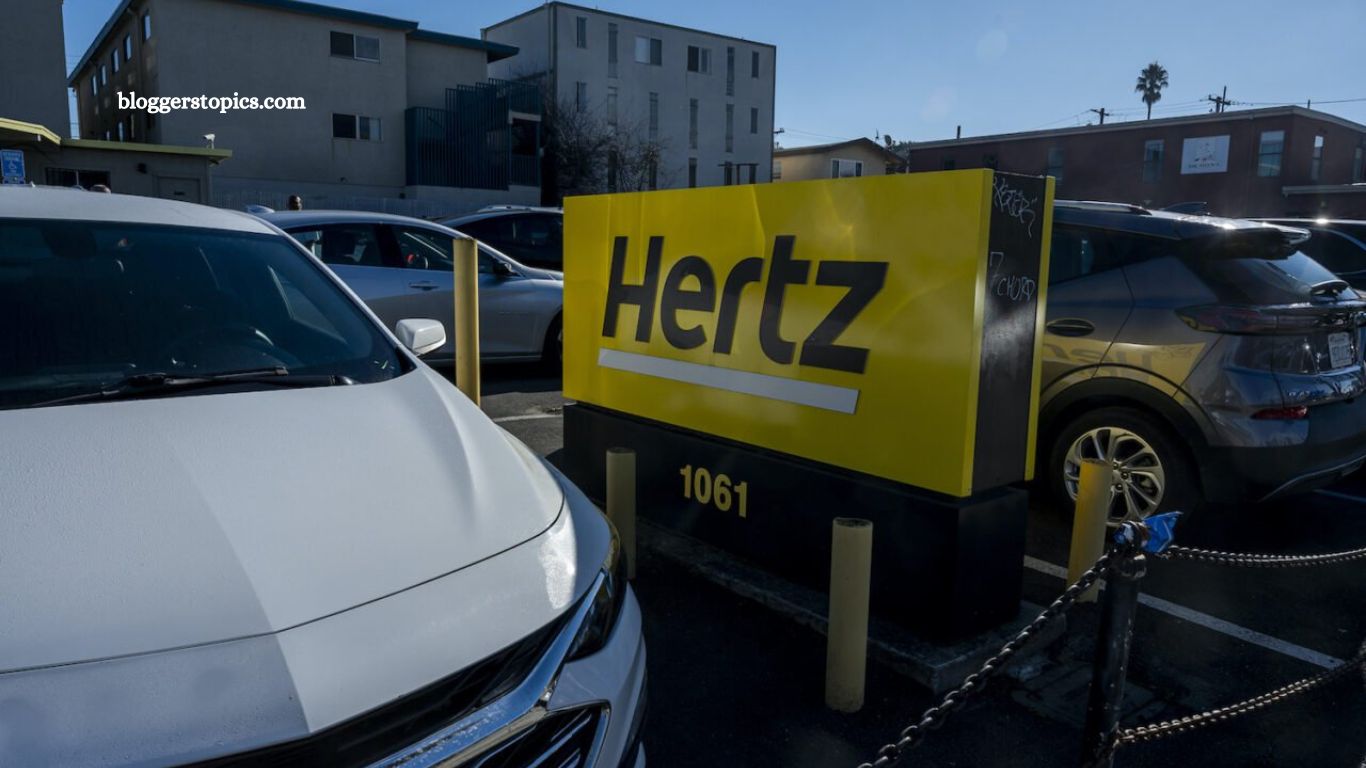Car rental giant Hertz has found itself at the center of a growing controversy after rolling out artificial intelligence–powered scanning technology to assess rental vehicle returns. While the company promoted the technology as a way to improve transparency and efficiency, many customers allege that the scanners are unfairly charging them excessive fees for minor or questionable damages.
The issue has now reached Capitol Hill, where U.S. Representative Nancy Mace (R-South Carolina), chair of the House Subcommittee on Cybersecurity, Information Technology, and Government Innovation, has formally requested clarity from Hertz about the program. The move places Hertz in a spotlight that extends well beyond unhappy renters, raising questions about corporate accountability, consumer protection, and the use of AI in business operations.
Read More: Google’s Breakthrough in Real-Time Translation: AI That Replicates Your Voice
The Rollout of Hertz’s AI Scanners
Hertz partnered with Israeli technology firm UVeye to deploy AI-powered inspection systems across its rental locations. UVeye originally developed its scanning technology for homeland security applications — detecting threats such as weapons or explosives. Over time, the company pivoted to commercial use, repurposing its systems to scan cars for dents, scratches, and other forms of damage.
According to Hertz, the scanners are designed to ensure consistency and reduce human error in vehicle inspections. In theory, this means fewer disputes between customers and the company, with AI offering a supposedly objective assessment.
However, in practice, customers report that the system has been anything but fair.
Customer Complaints: “Outrageous Fees Over Minor Issues”
Numerous renters have stepped forward, alleging that the scanners automatically flagged minor scuffs and scratches, generating bills that they considered excessive and unreasonable.
- The New York Post reported that dozens of customers complained of large fees linked to minor blemishes.
- On Reddit, frustrated renters have shared stories about surprise charges, calling the technology predatory and unfair.
- The Drive highlighted the case of Patrick, a customer charged $440 for a minor scuff on a rental car’s wheel. The charge included $250 for repair, $125 for processing, and $65 in administrative fees — all for what amounted to cosmetic curb rash.
For many customers, the frustration extends beyond the charges themselves. Renters describe encountering a maze-like, confusing complaint system when trying to reach a human representative. The lack of clarity leaves customers feeling trapped, with little recourse once the AI system has flagged damage.
The Broader Problem: AI and Consumer Trust
The controversy surrounding Hertz reflects a broader issue in the growing integration of AI into everyday business practices. Companies increasingly deploy automated systems to reduce costs and standardize processes, but these systems often operate in ways that lack transparency for consumers.
When AI decisions directly affect people’s finances such as fees, penalties, or charges — trust becomes critical. In Hertz’s case, customers argue that:
- Minor damages are exaggerated into major costs.
- AI lacks contextual judgment — a small scuff is treated the same as severe damage.
- Appeal processes are difficult or inaccessible, leaving consumers at a disadvantage.
These criticisms echo wider concerns about automation: when AI makes a decision, who is accountable, and how can individuals challenge it?
Congressional Interest: Nancy Mace’s Involvement
The controversy escalated further when Rep. Nancy Mace became involved. According to The New York Post, Mace sent a letter to Hertz CEO Gil West, requesting clarification about how the AI scanners are being used and how they may impact Hertz’s role as a federal contractor.
The letter reportedly asked Hertz to provide a “better understanding” of its “experience as an early adopter of AI scanning technology.” Mace also raised questions about potential implications for Hertz’s work with the government.
While Mace’s political reputation has often been polarizing, her role as chair of the House Subcommittee on Cybersecurity, Information Technology, and Government Innovation gives her inquiry weight. The subcommittee is tasked with oversight of government adoption of emerging technologies, making her concerns about AI use in private-sector partnerships relevant.
Hertz’s Response
In response to criticism, Hertz defended its program in a statement, saying:
“The vast majority of rentals are incident-free. When damage does occur, our goal is to enhance the rental experience by bringing greater transparency, precision, and speed to the process.”
This defense suggests that Hertz views the scanners as a step forward, but it does little to address specific allegations from renters. The lack of detail in Hertz’s statement leaves unanswered questions:
- What thresholds does the AI system use to determine chargeable damage?
- Are human employees reviewing AI findings before billing customers?
- What recourse do customers have if they dispute an AI-generated claim?
Industry-Wide Implications
Hertz’s use of AI scanners may set a precedent for the broader car rental industry. If successful, competitors could adopt similar systems to cut labor costs and streamline operations. However, if the technology continues to spark backlash, it could trigger regulatory scrutiny.
Other industries face similar dilemmas with AI adoption:
- Airlines use automated systems for ticketing, seating, and overbooking often frustrating passengers.
- Insurance companies increasingly rely on AI to calculate premiums or assess claims, sometimes resulting in unfair outcomes.
- Retail and e-commerce use AI to monitor returns and detect fraud, but consumers often report feeling unfairly flagged.
The Hertz case may therefore serve as a litmus test for how far companies can push automation before regulators step in.
The Consumer Rights Question
For consumers, the controversy highlights key rights and protections that remain unclear when AI is involved:
- Transparency: Customers want to know how AI arrives at its conclusions.
- Accountability: Who is responsible when AI makes an error — the machine, the company, or both?
- Appeal Mechanisms: Customers need clear, accessible ways to challenge disputed charges.
- Oversight: Should government agencies regulate AI use in consumer-facing industries?
Without clear answers, public distrust of AI systems in commercial use will likely grow.
Political Optics: Why Nancy Mace’s Role Matters
Critics note that Rep. Mace is not always seen as a serious policymaker. She has courted controversy with statements on immigration, LGBTQ issues, and infrastructure funding. Nevertheless, her engagement with the Hertz case highlights how quickly consumer complaints can escalate to political attention when AI is involved.
While Mace’s inquiry alone may not lead to concrete change, it raises the profile of the issue and increases the likelihood that other lawmakers will take interest. In the past, congressional scrutiny has forced companies to modify or abandon controversial practices.
The Road Ahead for Hertz
The future of Hertz’s AI scanning program depends on how the company addresses the backlash. Options include:
- Increased transparency: Publishing clear guidelines on how the AI evaluates damages.
- Human oversight: Ensuring that human employees review AI findings before billing customers.
- Improved dispute resolution: Offering renters easier ways to appeal charges.
- Regulatory compliance: Cooperating with congressional inquiries to demonstrate accountability.
If Hertz fails to address these concerns, the company risks not only losing customer trust but also facing government regulation that could restrict its use of the technology.
Frequently Asked Questions (FAQs)
Why is Hertz using AI scanners?
Hertz partnered with Israeli firm UVeye to deploy AI-driven inspection technology. The scanners were originally designed for homeland security but have been adapted to assess rental cars for damages. Hertz claims the system brings more accuracy, transparency, and speed to the vehicle return process.
What problems are customers reporting with Hertz’s AI scanners?
Many customers allege that the AI scanners unfairly flag minor scuffs and scratches, leading to excessive fees. Some have reported charges of hundreds of dollars for cosmetic blemishes such as wheel curb rash. Others say they struggled to reach a human representative when disputing charges.
How much can customers be charged by the AI system?
Charges vary depending on the damage detected, but reports suggest that bills can reach several hundred dollars. For example, one customer reported being billed $440 for a minor wheel scuff, with fees broken down into repair, processing, and administrative costs.
What is Rep. Nancy Mace’s role in the controversy?
Rep. Nancy Mace (R-SC), chair of the House Subcommittee on Cybersecurity, Information Technology, and Government Innovation, has asked Hertz’s CEO for clarification on the AI program. She expressed concern about how the scanners might impact Hertz’s role as a federal contractor.
Has Hertz responded to the complaints?
Hertz has defended the technology, stating that the “vast majority of rentals are incident-free” and that the scanners enhance customer experience by offering “greater transparency, precision, and speed.” However, the company has not provided detailed responses to specific complaints.
Can customers dispute AI-generated charges?
Yes, but many customers report that the complaint process is difficult and unclear. Renters have shared experiences of struggling to reach a human representative or navigate Hertz’s appeals system.
Could this lead to government regulation?
It’s possible. With congressional attention now on the matter, lawmakers may push for oversight of AI use in consumer-facing industries to ensure fairness and accountability.
Conclusion
Hertz’s experiment with AI scanners reflects both the promise and pitfalls of artificial intelligence in consumer industries. While the company claims the technology improves efficiency and fairness, customers argue that it has instead introduced new frustrations and financial risks.The controversy has now reached Congress, where Rep. Nancy Mace’s inquiry signals that AI adoption in business will not go unchecked.







